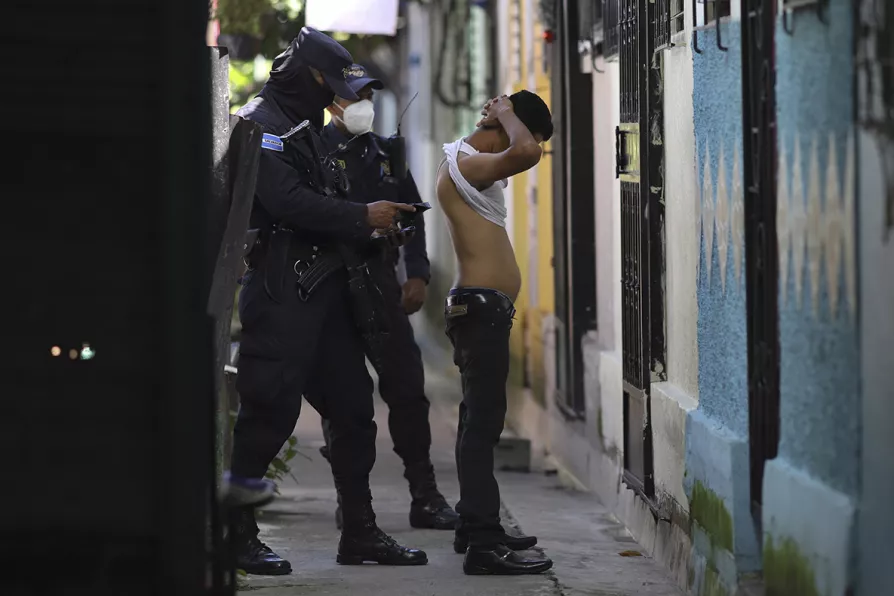Rights group in El Salvador calls for an end to two year state of emergency

 A police officer searches a man in the Kiwanis Community during a patrol in search of gang members in Soyapango, El Salvador, August 16, 2022, amid a state of exception
A police officer searches a man in the Kiwanis Community during a patrol in search of gang members in Soyapango, El Salvador, August 16, 2022, amid a state of exception
THE Inter-American Commission on Human Rights on Wednesday called on El Salvador to end the more than two-year state of emergency, which has suspended fundamental civil rights in the country.
The regional human rights body noted that plunging rates of violence in El Salvador made clear that the state of emergency was no longer justifiable.
“They show the emergency situation has been overcome, and thus a situation that justifies maintaining active the suspension of rights and protections in line with the American Convention no longer exists,” the commission said in a report.
Similar stories

Without due process, hundreds of Venezuelans living in the US have been arrested, slandered as terroristic criminals and sent flown in chains to El Salvador’s notorious mega-prison under an obscure 18th-century law, reports JOHN PERRY













